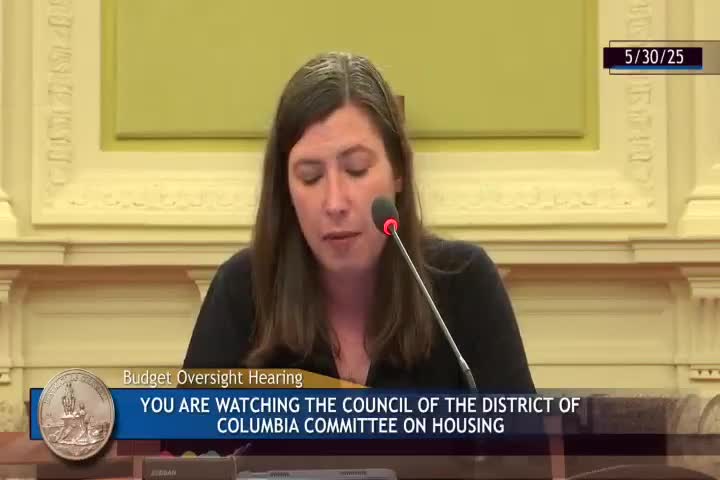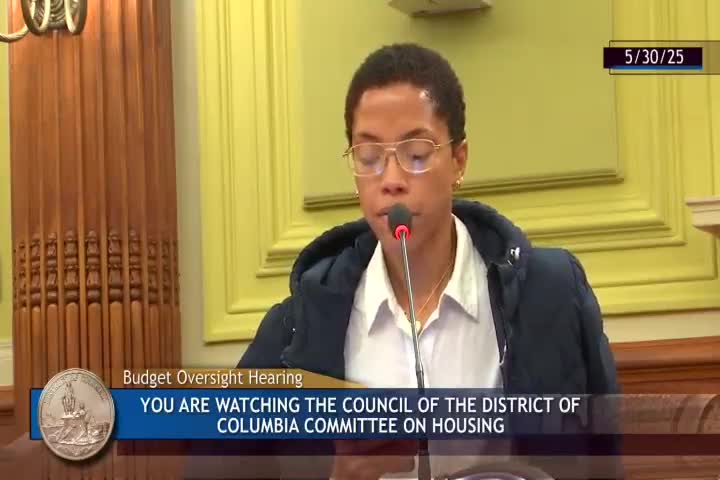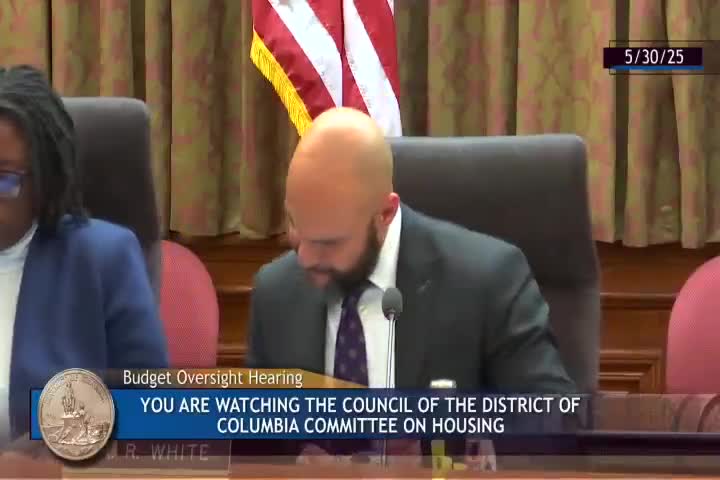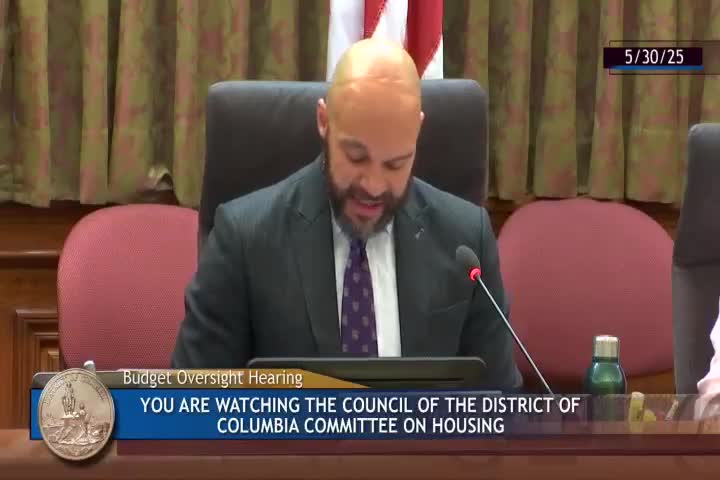Article not found
This article is no longer available. But don't worry—we've gathered other articles that discuss the same topic.

DCHA tells council it can rehab roughly 800 units a year but warns HUD approvals and infrastructure costs slow work

Residents tell DCHA oversight hearing of inspection delays, management issues and intimidation at properties

Advocates demand $60 million annual public-housing repairs and a statutory right to return

Providers ask D.C. housing committee to fund more supportive vouchers and speed the voucher-to-lease process

